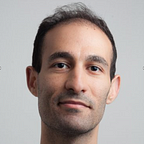The Fight Over Free Will
There is still no peace in the war over free will. Philosophers and scientists regularly talk past each other, and it can be difficult to know exactly what someone means when they say “free will is an illusion!” or “free will is real!”. People start with different definitions of what it means to be free, which naturally leads discussions deep into a rabbit hole.
Many long and painful debates have focused on what people are thinking when they use the phrase “free will”. So you first need to decide what you think it means to be free. Do you feel as though you have a mind plus a brain, and that your mind makes a decision which your brain then implements as an action? Would it shock you if scientists could read your unconscious brain activity to predict some decision you were going to make — “you” being your conscious mind — before you had made that decision yourself?
Beliefs about mental events preceding brain activity are typically “dualist”. This is the idea that there are separate substances for mind and brain: the mind is an immaterial substance like a soul, and the brain is a material substance made of biological matter. Sometimes, people don’t believe that they’re dualists, but many of their beliefs and actions suggest that they adopt those kinds of assumptions implicitly. Rather than the mind being simply a function of the brain, dualism would mean that the mind can…
